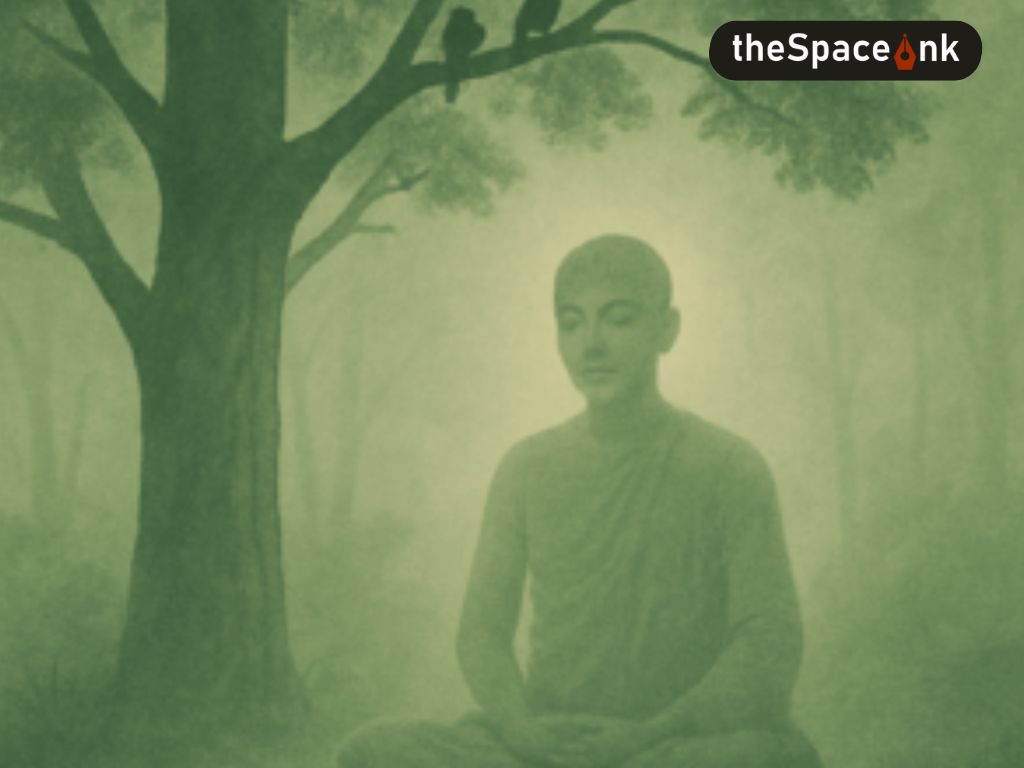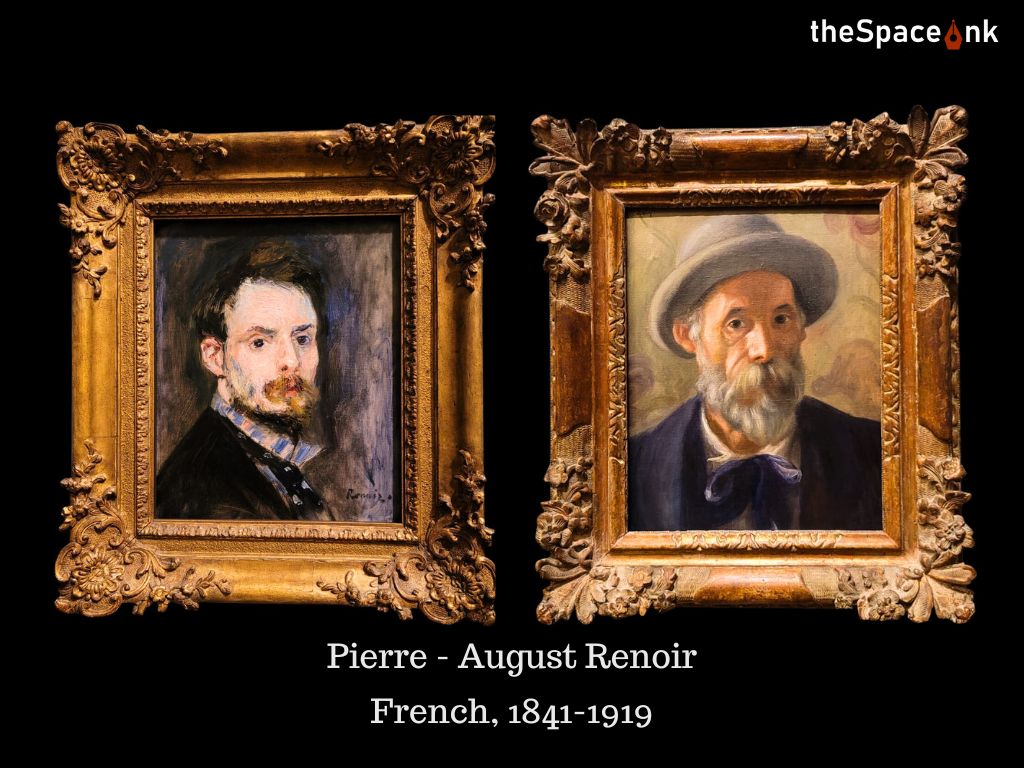(Vyādha Gita)
You wouldn’t expect a butcher to preach to a monk. None of us do.
But that’s exactly what happens in one of Swami Vivekananda’s favorite stories—one that slices through spiritual ego like, well… a butcher’s knife. (Vyādha Gita)
This isn’t a feel-good tale about karma-lite. This is the Vyādha Gita, from the Mahabharata’s Vana Parva—and its wisdom might just be the spiritual compass we need in our burnout-prone world.
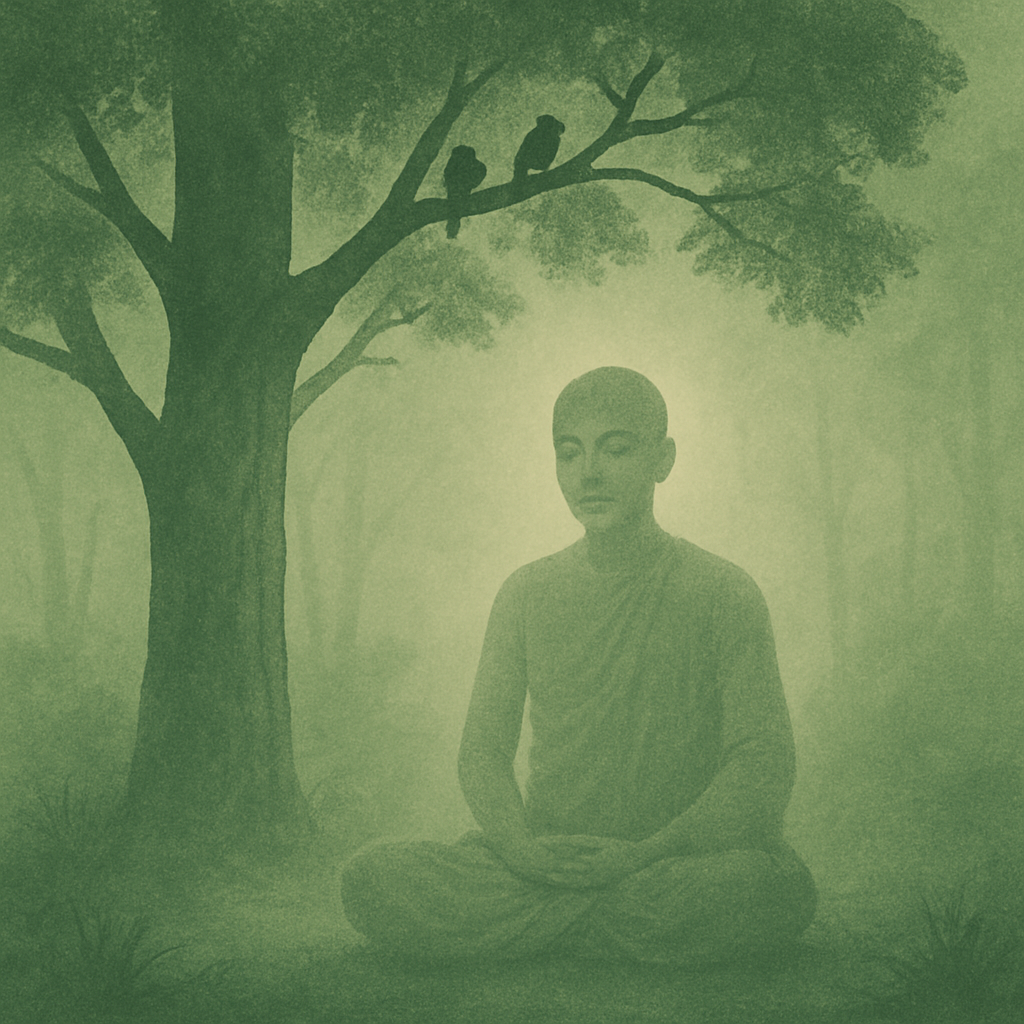
The Monk, the Birds, and the Fire
A young monk had been practicing yoga and austerities deep in the forest. He thought he had reached the “I’ve-got-powers-now” level. One day, as he meditated under a tree, a crow and a crane began fighting above him. Dry leaves fell on his head.
Irritated, he looked up—and in a flash, his fiery gaze reduced both birds to ashes.
He was thrilled. The power of yoga was real—and his.
Later, he went to a village to beg for alms. Standing at a doorstep, he called, “Mother, give me food.” A voice replied, “Wait, my son.” (Vyādha Gita)
After finishing her work, the lady came out. She offered food and said, “If you really seek answers, go to the market and meet a butcher named Dharma-Vyādha. From him, you will learn something far higher than what you’ve gained in the forest.”
That didn’t sit well with our newly fire-eyed monk. “How dare she make me wait? Doesn’t she know what I can do?”
The woman behind the door read his thoughts like an open book. Calmly said, “My son, I’m not a crow or a crane. I was tending to my ailing husband. That is my yoga—serving my family with devotion.” (Vyādha Gita)
The monk, stunned, waited—not so much for the food now, but to understand how this ordinary woman had read his mind.
Read More: The Tree that Grants Wishes: Legend of the Kalpataru
After finishing her work, the lady came out. She offered food and said, “If you really seek answers, go to the market and meet a butcher named Dharma-Vyādha. From him, you will learn something far higher than what you’ve gained in the forest.”
Vyādha: The Enlightened Butcher
Puzzled but curious, the monk made his way to the town market. There he saw the Vyādha—clad in blood-stained clothes, wielding knives, bargaining with customers. Wisdom? Not even a hint from the outside. (Vyādha Gita)
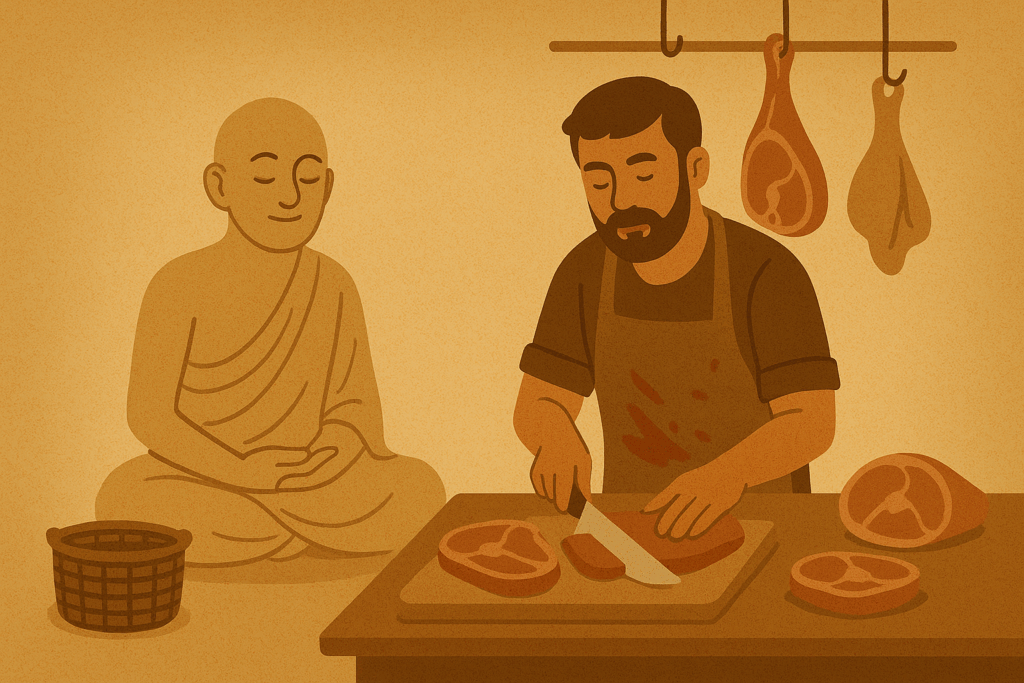
But the moment the monk approached, the butcher greeted him, as though expecting him. “Swami, did the lady send you here? Please sit. Let me finish my work.” (Vyādha Gita)
And so the monk waited. The Vyādha continued chopping and selling meat, calmly and skillfully.
After his day’s work, the Vyādha brought the monk to his home. There, he lovingly washed his aged parents’ feet, fed them, and made them comfortable. Only then did he sit before the monk and ask, “Now, Swami, what would you like to know?” (Vyādha Gita)
His message was clear: Not all duties feel noble. Or spiritual. But when done with love, without ego, and without attachment to the outcome, they purify the soul—and lead to freedom.
The monk asked about the soul. About God. About truth.
And the butcher answered—not with sermons, but with clarity. His words formed what is known as the Vyādha Gita—a profound teaching found in the Mahabharata. A flight of Vedanta straight from a man most wouldn’t look at twice.
He said, “No duty is ugly. No duty is impure. I do my work without attachment. That is my yoga. That is my attainment.”
Swami Vivekananda’s Take
Swami Vivekananda, the fierce monk of modern India, loved this story. He used it in his lectures, especially in his classic text Karma Yoga.
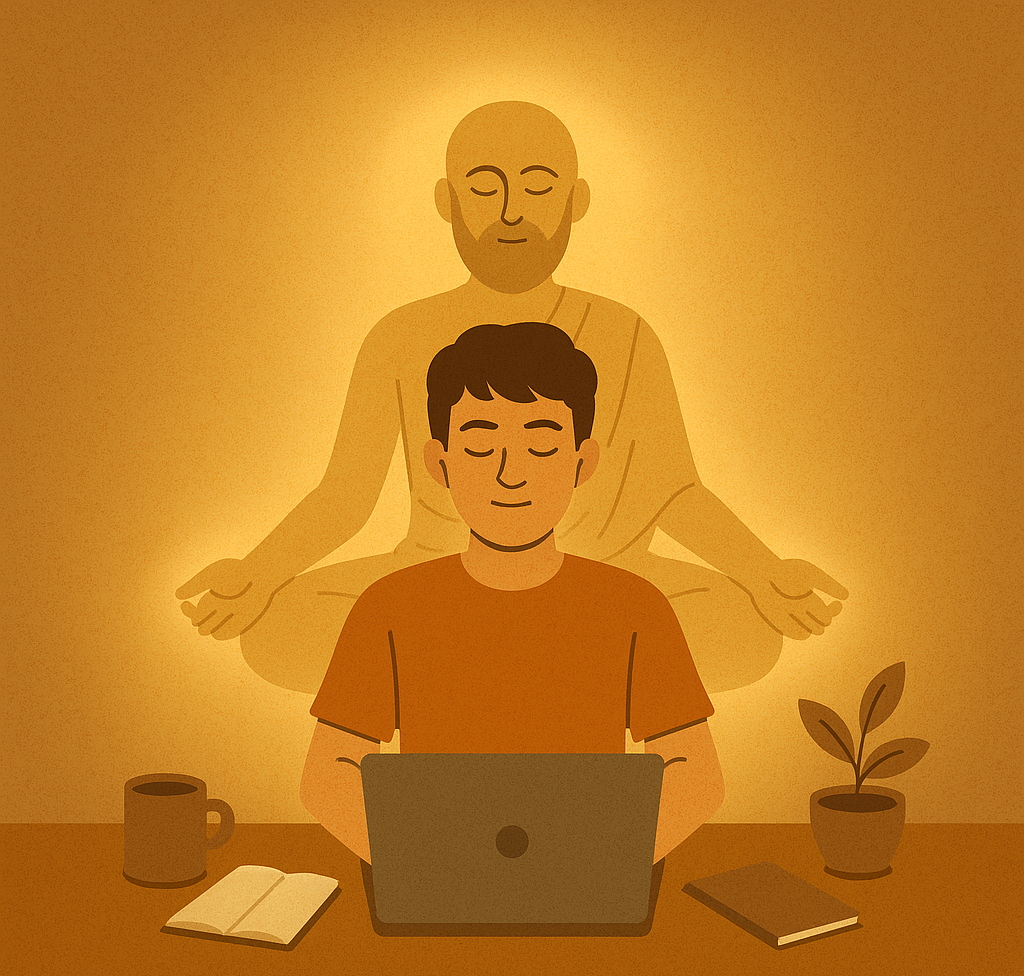
His message was clear: Not all duties feel noble. Or spiritual. But when done with love, without ego, and without attachment to the outcome, they purify the soul—and lead to freedom.
Even if your work involves chopping meat. Or changing diapers. Or filing spreadsheets.
Why This Matters Today
Let’s face it—not everyone can “quit their job and move to the Himalayas,” or “follow their passion and touch the sky.”
Like Sanskrit verse says: Do your duty well, without attachment; that alone is the path to liberation. So if you’re feeling stuck, exhausted by the hustle, or questioning your life’s worth—pause. Breathe.
Most of us live in the real world. Bills to pay. Parents to care for. Reports to file.
And that’s exactly where the Vyādha Gita shines. It tells us:
• You don’t need to leave the world to grow spiritually.
• Your ‘boring’ job is not meaningless.
• Service done with love beats rituals done without heart.
• Enlightenment doesn’t always come in religious robes.
Read More: The Disappearance of Agatha Christie: A Mystery more Intriguing Than Her Novels
Like Sanskrit verse says: Do your duty well, without attachment; that alone is the path to liberation. So if you’re feeling stuck, exhausted by the hustle, or questioning your life’s worth—pause. Breathe.
Not every hero wears a monk’s robe or Superman’s cape. Some wear aprons. Some sit at desks. Some quietly care for aging parents. And when they do it with heart—they are monks in disguise. Spiritual warriors. The unsung saviors of our time. Like Dharma-Vyādha in Mahabharata.
Illustrations created by the author using AI tools
Pijus Ash is a freelance journalist with over two decades of experience. An avid reader by nature, he likes to pursue independent research. In addition to his passion for reading, Pijus enjoys traveling and frequently embarks on backpacking.


